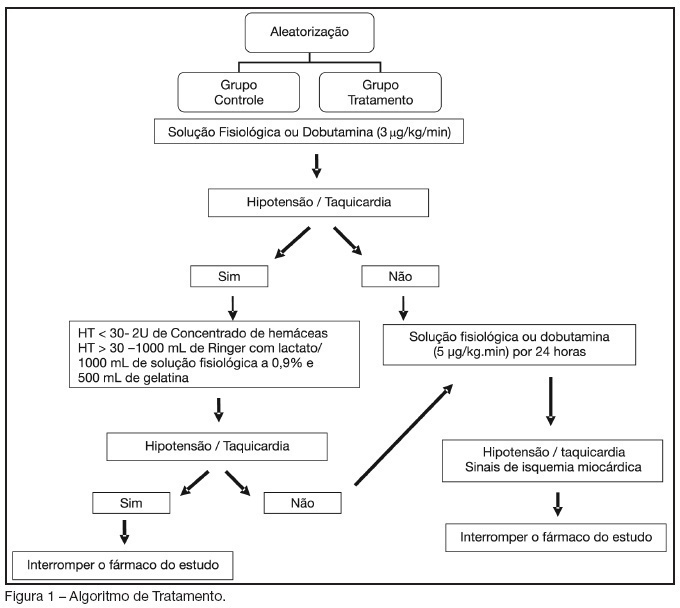
BACKGROUND AND OBJECTIVES: Dobutamine is an inotropic agent with predominant beta1- adrenergic properties frequently used to increase blood flow in critically ill patients. Dobutamine may have a role in increasing splanchnic perfusion, thereby protecting this area from further injury. We investigated the effects of low doses dobutamine (5 mug/kg/min) on tissue oxygenation, inflammatory response and postoperative complications in high-risk surgical patients. METHODS: Prospective, randomized, blinded and placebo-controlled study. One hundred surgical patients admitted in a step-down unit were evaluated and 82 patients were enrolled, 42 in the control group (saline) and 40 in the treatment group (5 mug/kg/h) during 24 hours. Similar therapeutic goals were applied to both groups. Fluids were given whenever tachycardia or hypotension developed after study drug infusion. RESULTS: The total volume of fluids given was significantly higher in treatment than in control group (7351 ± 2082 mL versus 6074 ± 2386 mL, respectively, p < 0.05). Central venous oxygen saturation (ScvO2), serum lactate and C-reactive protein were similar in both groups. Complications occurred in 35% and 50% of the patients in the treatment and control groups, respectively (RR 0, 70 IC 95% 0.41 - 1.17; NS). CONCLUSIONS: Low-doses dobutamine and fluids after surgical trauma has no effects on the prevalence of postoperative complications in high-risk surgical patients.
Search
Search in:


Comments